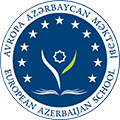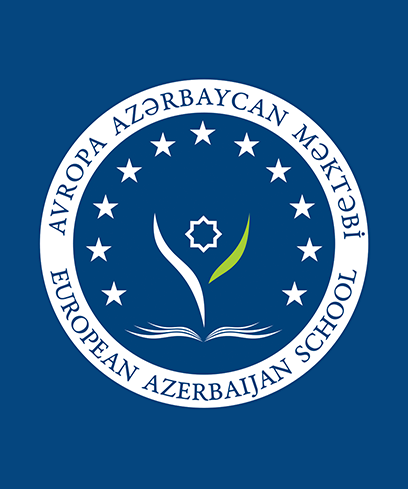1. ACADEMIC INTEGRITY POLICY
The European Azerbaijan School (EAS), values honesty and academic integrity. We encourage all students to conduct themselves in a responsible way. In this spirit, we expect all students to refrain from misconduct. EAS believes that instruction in academic and personal honesty is a fundamental part of a student’s education. Honesty and integrity are character traits that are expected from every student. Academic dishonesty is generally defined as cheating or creating a false impression of a student’s performance.
At the beginning of every academic year we organize meetings for students and parents in our three different programmes, explaining how important academic integrity is in our school. We take this opportunity to share with parents our policy and review with them the practice and the vital support they can give to us and to our students.
According to the International Baccalaureate, academic integrity must be seen as a set of values and skills that promote personal integrity and good practice in teaching, learning and assessment. All students at EAS are expected to strive to develop attributes of the IB Learner Profile. Therefore, the IB Learner Profile is the cornerstone of the school’s academic honesty policy.
Read more:
2. ADMISSION POLICY
The European Azerbaijan School seeks to admit suitably-qualified students of all nationalities whose families want their children to be educated in a school community that represents our multicultural world. Students should have the aptitude to succeed in a rigorous academic environment, while developing the necessary skills and competencies to be active, compassionate learners, and engaged global citizens. The school’s admissions policy outlines how the school conducts its admissions on a fair and non- discriminatory basis, adhering to the admissions’ criteria.
EAS seeks to create balanced social and learning groups characterized by diversity. Our learning community is united by a common goal of developing the attitudes and interpersonal skills required for successful International Baccalaureate learners worldwide, that is students who possess the appropriate level of academic readiness, are collaborative, internationally-minded and able to engage meaningfully in independent inquiry.
Read more:
3. ASSESSMENT POLICY
Assessment lies at the heart of the process of promoting pupils’ learning. It provides a framework within which educational objectives are set and pupils’ progress expressed and monitored. This should be done in partnership with pupils.
Assessment should be incorporated systematically into teaching strategies in order to diagnose any problems and chart progress. In turn assessment will strengthen learning across the curriculum and enhance teachers’ skills and judgements. This policy outlines the purpose, nature and management of assessment at EAS
Read more:
4. LANGUAGE POLICY
The language policy outlines our school’s linguistic and academic goals. The EAS Language policy is designed to help our students in their learning journey, and our teachers in their planning for teaching and learning. The document provides an overview and guiding principles for language learning that permeates the entire school curriculum. Our policy is a statement of agreement, to which the entire EAS community is expected to commit to achieving our mission.
Read more:
5. E-LEARNING POLICY
The European Azerbaijan School recognizes the value of online education in this particular situation. We continue to provide personalized and challenging educational programmes through the online platforms and the dedication and support of our entire staff involving also the parents and guardians as support. Students will benefit from the knowledge and expertise of teachers, and be involved in student-centered lessons, which are going to be reflected in opportunities for interaction and collaboration with teachers and students, developing a rigorous learning process that prepares students for a successful career, and responsive to technological understandings and communication.
The e-Learning Policy applies to all the EAS community, administration, teachers, students, and parents are all involved in making this policy an opportunity to work together to support our community and all our students.
Read more:
6. DATA PROTECTION POLICY
European Azerbaijan School (EAS) is committed to comply with the General Data Protection Regulation (GDPR) 2018 in protecting students and parents’ personal information that has been processed by the school. This document informs you of the School’s policy and practices on data privacy matters, before you provide your personal data to the School. The word “You” or any derivation thereof, as used herein refers to the owner of the personal data, which includes both the student and the parent/legal guardian of the child.
Read more:
7. CHILD PROTECTION POLICY
The European Azerbaijan School endorses the UN Convention on the Rights of the Child (1989), of which our host country, Azerbaijan, is a signatory. Schools fill a special institutional role in society as protectors of children. Schools need to ensure that all children in their care are afforded a safe and secure environment in which to grow and develop, both at school and away. Educators, having the opportunity to observe and interact with children over time, are in a unique position to identify children who need help and protection.
Read more:
8. INCLUSION POLICY
The European Azerbaijan School is organized in a way that diversity of all kinds can be included as a resource, seeing individual differences not as a problem that needs to be fixed, but rather as an opportunity for enriched learning. This policy states the philosophy, aims, and approaches required to meet the individual needs of our students. It also outlines the factual and procedural knowledge needed by classroom teachers to teach students with special educational needs.
Read more:
9. TECHNOLOGY ACCEPTABLE USE POLICY FOR STAFF AND STUDENTS
At The European Azerbaijan School (EAS) the welfare and well-being of our pupils is paramount. The technology acceptable use policy aims to allow users to benefit from modern communication technologies, whilst promoting safe and appropriate practice by establishing clear and robust acceptable technology user guidelines. This is achieved through balancing protection against potential misuse with the recognition that technologies such as mobile phones, ipads, and smartwatches are effective communication tools. It is recognised that it is the enhanced functions of many mobile phones that cause the most concern, offering distractions and disruption to the working day, and which are most susceptible to misuse. However, as it is difficult to detect specific usage, this policy refers to all communication devices.
Read more:


